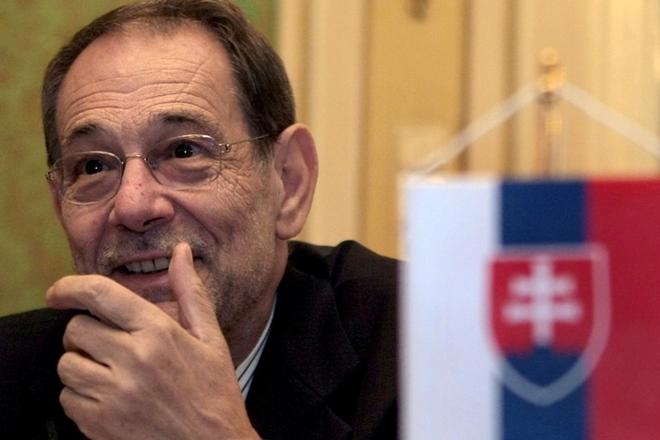THE ADOPTION of the euro at the beginning of this year has helped to protect Slovakia from the most severe impacts of the global financial crisis, said EU Foreign and Security Policy Chief Javier Solana, who visited Slovakia on June 30 to meet Slovak Foreign Affairs Minister Miroslav Lajcak and Prime Minister Robert Fico.
“It is really very good that Slovakia can be under the protection of a large Europe,” the SITA newswire quoted Solana as saying.
He praised the progress Slovakia has made over a short period of time and added that given the similar experience of his mother country Spain he is well aware of its difficulty.
“The country has carried out a real load of work over a very short time; you became members of the European Union, NATO members, Schengen members, and even entered the eurozone, so I may tell you, it is really exceptional,” Solana said.
He also spoke about the importance of the Lisbon Treaty, which is awaiting the decision of Irish voters in a second referendum as well as the signatures of the Polish and Czech presidents.
“Right now is a very important moment, as ratification of the Lisbon Treaty is impending and new pages of European history will be written,” he said. “Also there you will play a very important role in formation of European values, as Slovakia is geographically as well as with regard to its values, situated in the centre of Europe.”
With Foreign Minister Lajčák, they also spoke about developments in the Balkans; Lajčák and Solana used to cooperate closely when the latter served as the international community's high representative in Bosnia and Herzegovina. Solana praised Lajčák for the work he did in that post. He believes the countries of the Balkans are on the right track to join European institutions, SITA reported.
Solana said he did not support further sanctions against Iran because of the escalating tension following the recent disputed presidential elections in the country. The UN has already agreed sanctions against Iran over its nuclear programme, and the EU applies an even a tougher approach in some instances.



 Javier Solana visited the Slovak Government's Office. (source: SITA)
Javier Solana visited the Slovak Government's Office. (source: SITA)